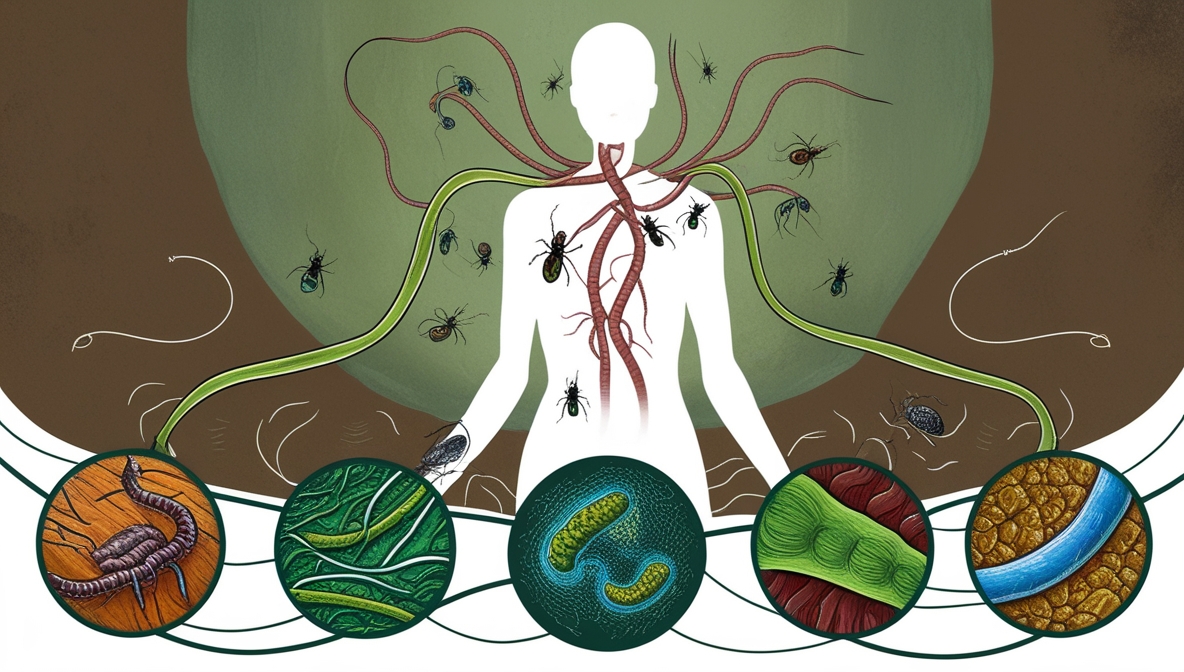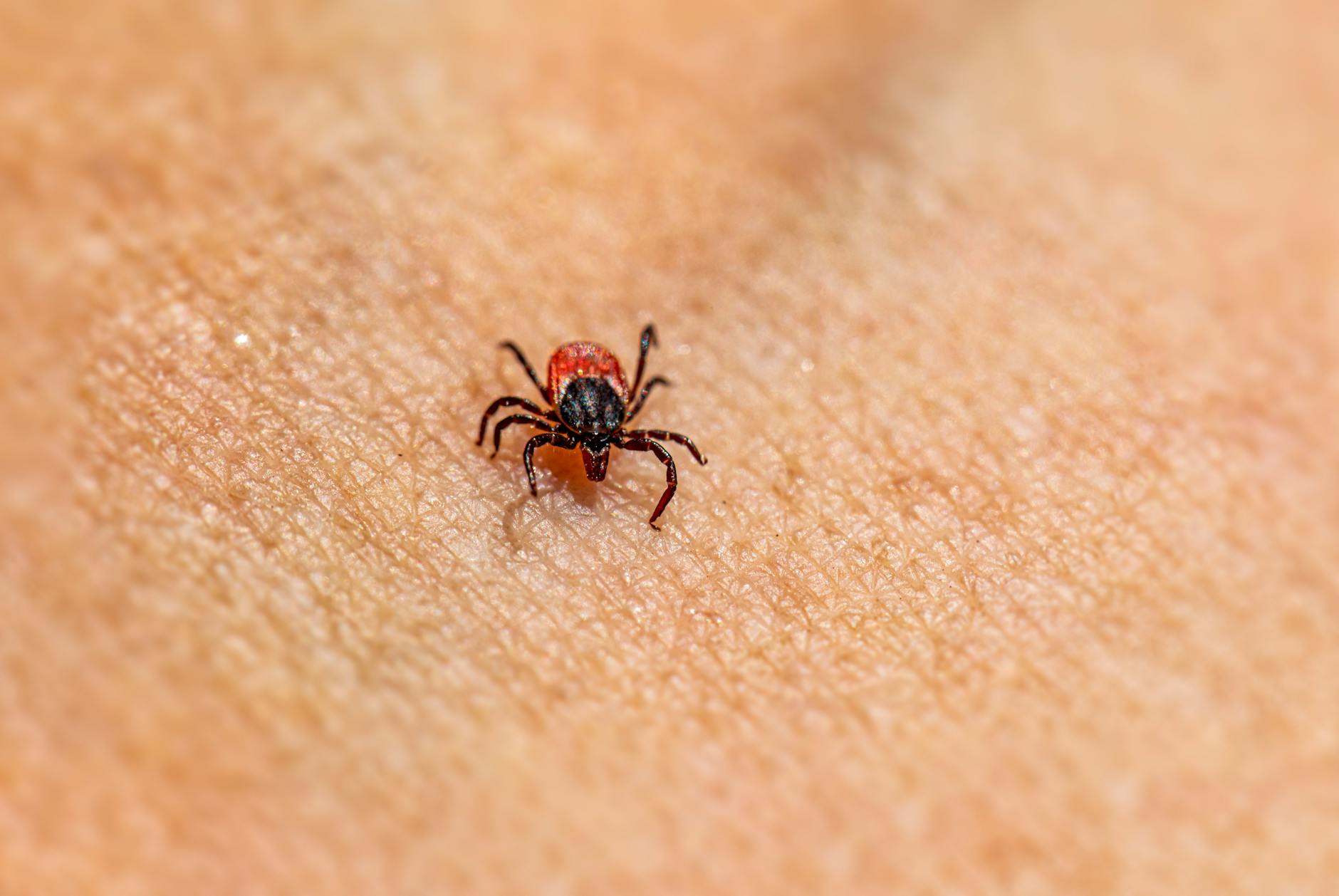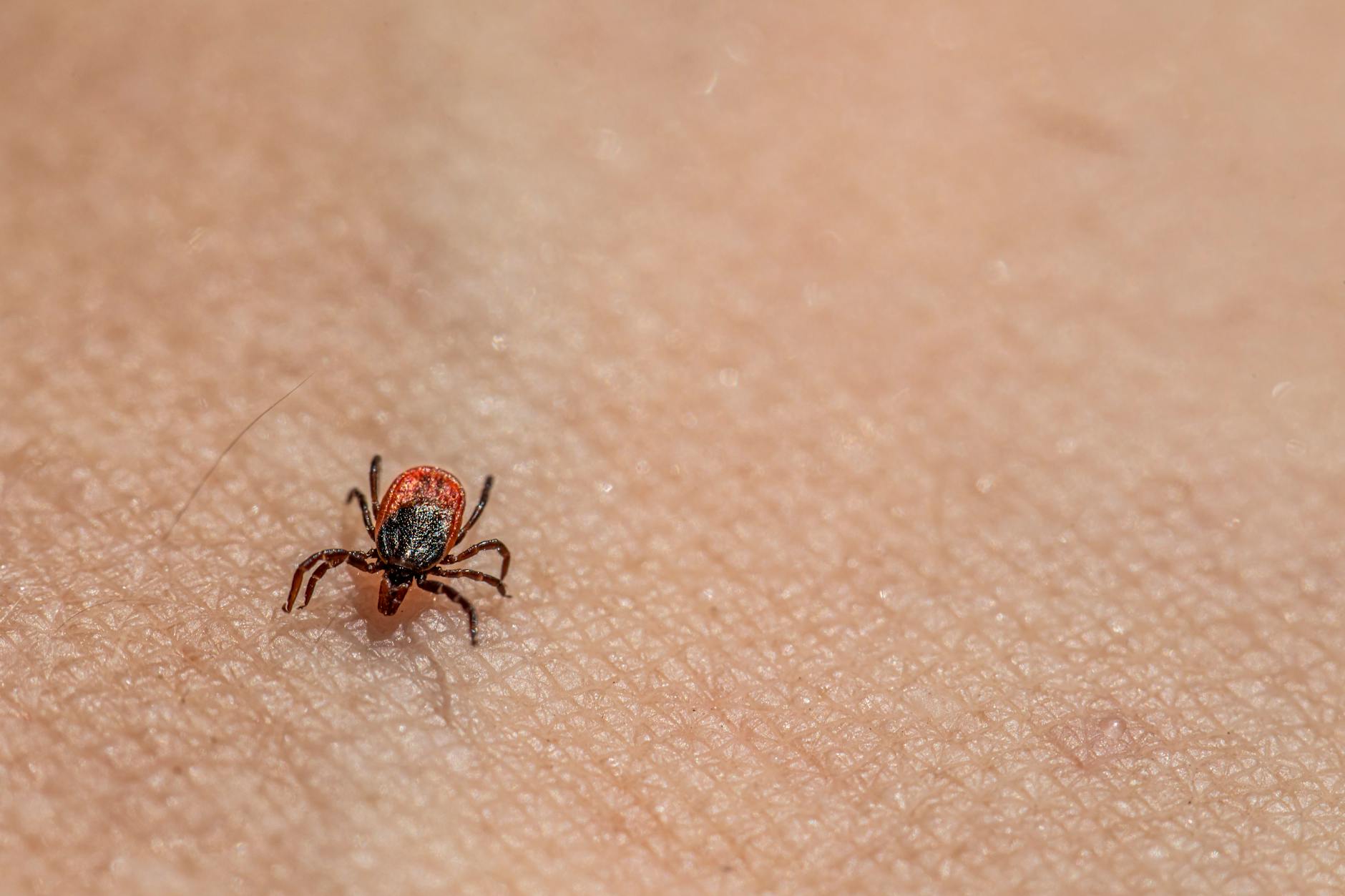Parasites and Hyperthyroidism: Understanding the Connection and Impact on Health

The connection between parasites and hyperthyroidism might not seem obvious at first, but it’s an important health topic to explore. Parasites can impact various body systems, including the thyroid, potentially affecting its functionality. This can lead to imbalances that complicate overall thyroid health. Understanding this link is essential to managing symptoms and identifying potential triggers behind thyroid issues. It’s not just about addressing one condition—it’s about seeing how these seemingly unrelated factors can influence your well-being.
Understanding Hyperthyroidism
Hyperthyroidism, also known as an overactive thyroid, happens when the thyroid gland produces excessive thyroid hormones. These hormones control your body’s metabolism, which is responsible for converting food into energy. When this process speeds up, it can affect nearly every organ in your body, from your heart rate to your digestion. Let’s take a closer look at the symptoms you may experience if you have hyperthyroidism.
Symptoms of Hyperthyroidism
The symptoms of hyperthyroidism can vary depending on the severity of the condition and the individual. Below is a breakdown of the most common symptoms and what they mean for your body:
1. Unintended Weight Loss
One of the hallmark signs of hyperthyroidism is losing weight despite maintaining or even increasing your appetite. This happens because your metabolism is working overtime, burning more calories than usual.
2. Increased Appetite
Paradoxically, while you might lose weight, you could find yourself feeling hungry all the time. Your body craves more fuel as it burns through its energy stores more quickly.
3. Anxiety and Nervousness
Excess thyroid hormones can overstimulate your central nervous system, leading to heightened feelings of anxiety or jitteriness. You might feel like you’ve had too much coffee, even when you haven’t touched a cup.
4. Rapid Heartbeat (Tachycardia)
Hyperthyroidism often causes your heart to race or beat irregularly. This can feel like palpitations or a constant pounding in your chest, even at rest.
5. Sleep Disturbances
If you have trouble falling or staying asleep, your overactive thyroid could be the culprit. The increased energy levels, combined with nervousness, can make it challenging to relax enough for restful sleep.
6. Heat Intolerance
Do you feel uncomfortably warm, even when others are comfortable or cool? Hyperthyroidism can make you more sensitive to heat, as your body is generating energy and heat at a rapid rate.
7. Tremors
Some people with hyperthyroidism notice slight shaking, usually in their hands or fingers. This is another result of your nervous system being in overdrive.
8. Fatigue and Muscle Weakness
While hyperthyroidism speeds up many processes, it can leave your muscles feeling weak and your body exhausted. This fatigue is different from just being tired—it feels like a deep physical drain.
9. Hair Thinning and Skin Changes
Your hair might become finer or fall out, and your skin may feel sensitive or unusually smooth. This occurs because thyroid hormones impact hair growth and skin health.
For a more comprehensive list of hyperthyroidism symptoms, check out this guide from Mayo Clinic that outlines additional signs and how they manifest.
Understanding these symptoms is not just about knowing what’s wrong—it’s about knowing what your body is trying to tell you. If you recognize these signs, consider speaking with a healthcare provider for further evaluation.

Photo by Sora Shimazaki
The Role of Parasites in Thyroid Health
Parasites can impact almost every system in the body, including the thyroid gland. While the connection between parasites and thyroid health might not be obvious, research suggests that certain types of parasites can directly or indirectly influence thyroid function. This interference can manifest as either underactivity (hypothyroidism) or overactivity (hyperthyroidism), depending on the individual and type of parasitic infection.
Types of Parasites Affecting Thyroid Function
Parasites can exert their effects on the thyroid gland through various mechanisms. Broadly, they fall into three categories: ectoparasites, helminths, and protozoans. Each type interacts with the thyroid differently, potentially altering its ability to regulate hormones vital for metabolism.
- Ectoparasites are external parasites like ticks or mites. While these organisms don’t directly invade the thyroid gland, their saliva may transfer pathogens or trigger inflammatory responses that could indirectly affect thyroid function. For example, tick-borne diseases such as Lyme disease have been studied for their association with autoimmune thyroid conditions.
- Helminths, or parasitic worms, primarily affect the gastrointestinal system but can have cascading impacts on the thyroid. Worm infestations can alter nutrient absorption, particularly iodine, which is essential for thyroid hormone production. Disruptions in iodine levels can lead to conditions like iodine-deficiency hypothyroidism or even exacerbate existing hyperthyroidism.
- Protozoans, single-celled parasites, can also influence thyroid health. For instance, Toxoplasma gondii has been linked to autoimmune thyroid diseases and may elevate thyroid antibodies, as explored in a study on parasitic infections and thyroid function. This immune response can potentially lead to thyroid dysfunction over time.
Including parasites in the wider conversation about thyroid health is essential because their effects may not always be straightforward or directly observed.

Photo by Erik Karits
Mechanisms of Action
Parasites are highly adaptive organisms with intricate ways of manipulating their hosts. These manipulations can extend to the thyroid, affecting its metabolic and immune regulation.
- Altered Immune Response
Parasites often dampen or overactivate the immune system to survive. In doing so, they may initiate autoimmune attacks on the thyroid, especially in predisposed individuals. Conditions like Hashimoto’s thyroiditis and Graves’ disease, both autoimmune disorders, could potentially be triggered or exacerbated. For example, some research suggests that eradicating infections with Blastocystis hominis reduces thyroid antibodies linked to autoimmune thyroiditis (source). - Nutrient Depletion
Parasitic infections can either rob the host of vital nutrients like iodine or disrupt their absorption in the digestive tract. Since iodine is critical for thyroid hormone synthesis, a lack of it could cripple the gland’s ability to function correctly, potentially leading to hypothyroidism or compensation through overactivity. - Metabolic Manipulation
Some parasites directly manipulate metabolism to fit their needs. By altering hormone levels, they maintain a host environment that enables their survival. This manipulation may cascade into thyroid hormone imbalances, creating issues like hyperthyroidism. - Inflammation and Hormonal Cross-Talk
Chronic inflammation stemming from long-term parasitic infections can create systemic stress that interferes with endocrine glands, including the thyroid. Elevated cortisol levels from stress can suppress or amplify thyroid hormone production, depending on the context.
When parasites invade or act upon the body, their effects go beyond the immediate area of infection. Their ability to manipulate immune responses and host metabolism makes them a stealthy yet significant variable in thyroid health. While research continues to unpack these relationships, it’s a compelling reminder of how interconnected our bodies truly are.
Research Insights on Parasites and Hyperthyroidism
Parasites and thyroid health might not immediately seem connected, but the evidence suggests otherwise. Over the years, researchers have explored how parasitic infections can interfere with thyroid function, leading to issues like hyperthyroidism or autoimmune thyroid conditions. Let’s dive into the studies and findings that reveal these intriguing interactions.
Studies Linking Parasites to Thyroid Dysfunction
Evidence linking certain parasites to thyroid dysfunction highlights the complex interactions between infections and endocrine health. Several studies focus on Toxoplasma gondii, a protozoan parasite, and its potential effects on thyroid health.
- Impact of Toxoplasmosis on Thyroid Function
Research has shed light on how Toxoplasma gondii infections might alter thyroid activity. For example, a study published in the OneHealth Journal reported that latent toxoplasmosis was significantly associated with thyroid hormone secretion. This suggests the parasite’s ability to provoke immune responses that could impact thyroid functionality. - Association with Autoimmune Thyroid Disorders
Another analysis in the Journal of Microbiology found a correlation between thyroid changes and toxoplasmosis in pregnant women. Their findings demonstrated that Toxoplasma gondii may trigger autoimmune responses in predisposed individuals. This could exacerbate or even initiate conditions such as thyroiditis. - Potential Thyroiditis Risks
The antigenic similarity between Toxoplasma gondii proteins and thyroid tissue proteins might play a role, as suggested by a study on Toxoplasma-related thyroiditis. This cross-reactivity may lead to thyroid inflammation or dysfunction, particularly during vulnerable periods like pregnancy.
Parasites like Toxoplasma gondii are just a part of the story. Other research highlights how generalized parasitic infections can serve as underlying contributors to endocrine disruptions. Understanding these links paves the way for new diagnostic and treatment strategies for thyroid conditions.
Symptoms of Parasitic Infections
Parasitic infections can present a wide range of symptoms, depending on the type of parasite and the area of the body affected. Often, these symptoms can be subtle or mistaken for other common health issues, making diagnosis challenging. Let’s look at the key signs to watch for when it comes to identifying potential parasitic infections.
Signs of Parasitic Infections
Recognizing the symptoms of parasitic infections is crucial for timely diagnosis and treatment. Parasites affect people in unique ways, but there are a few hallmark signs that often stand out.
Fatigue and Weakness
Do you find yourself constantly tired, no matter how much rest you get? Persistent fatigue could be a sign of a parasitic infection. Parasites can drain your body of nutrients, leaving you feeling exhausted and physically weak. They essentially act like uninvited guests at a party, consuming everything while leaving little for the host.
Digestive Issues
Your digestive system is a prime target for many parasites, leading to symptoms like:
- Persistent diarrhea or constipation
- Gas and bloating
- Stomach cramps or abdominal pain
For example, Giardia is a common intestinal parasite known for causing severe diarrhea and discomfort (source).
Unexplained Weight Changes
Have you noticed sudden, unexplained weight loss or even weight gain? Some parasites increase your appetite while simultaneously robbing your body of nutrients, causing weight to drop unexpectedly. Others impact metabolism, triggering weight gain in the process.
Skin Reactions
Your skin often reflects internal health issues. If you’re dealing with itchy rashes, hives, or even eczema-like symptoms, these could point to an underlying parasitic infection. Certain parasites, like mites, can manifest on the skin, directly causing these reactions.
Immune System Decline
Frequent illnesses or recurring infections might be your immune system struggling to keep up. Parasites can weaken your body’s defenses, leaving you more susceptible to colds, flus, or even more severe conditions.

Photo by Kindel Media
Cognitive and Mood Changes
Believe it or not, some parasites can even affect your brain and mood. Symptoms might include:
- Brain fog or mental confusion
- Mood swings or depression
- Insomnia or disrupted sleep
These symptoms occur because certain parasites release toxins that interfere with normal brain function, mimicking mental health issues.
For more detailed insights into parasitic infections, visit this guide by the Cleveland Clinic.
By understanding these symptoms and how they might signal a parasitic infection, you’re better equipped to seek help and explore treatment options. Recognizing these signs early can make a significant difference in combating the effects of parasites on your overall health.
Diagnosis and Treatment of Hyperthyroidism and Parasitic Infections
When dealing with conditions like hyperthyroidism and parasitic infections, accurate diagnosis and timely treatment are crucial. Both conditions can have overlapping symptoms with other health issues, making proper evaluation a necessary step. Let’s explore the approaches to diagnosis and the treatment strategies for managing these conditions effectively.
Diagnostic Approaches
Hyperthyroidism Diagnosis:
Hyperthyroidism is evaluated through a combination of medical history, physical exams, and laboratory testing. Blood tests measuring thyroid-stimulating hormone (TSH), free T4 (thyroxine), and T3 (triiodothyronine) levels are critical in confirming this condition. When blood results suggest hyperthyroidism, additional imaging studies like radioactive iodine uptake tests or thyroid ultrasounds may identify the underlying cause, such as Graves’ disease or thyroid nodules.
Some symptoms like rapid heart rate or unintended weight loss may appear unrelated to thyroid issues. Keeping an eye on these signs and discussing them with a healthcare provider can expedite diagnosis. For a deeper dive into medical evaluations, see this hyperthyroidism diagnostic guide.
Parasitic Infection Diagnosis:
Diagnosing parasitic infections requires healthcare providers to consider symptoms, travel history, and lab tests. Stool analysis, blood smears, and polymerase chain reaction (PCR) techniques are frequently employed. Depending on the parasite type, imaging tests like X-rays, CT scans, or MRIs may identify tissue damage caused by parasites. Microscopic examination is often the gold standard, particularly for identifying protozoans and helminths that affect the gastrointestinal system.
Certain parasites, such as those causing malaria or toxoplasmosis, require specialized testing techniques, which include serology tests or biopsies. Learn more about these diagnostic tools at the Centers for Disease Control and Prevention.
Treatment Strategies
Treating Hyperthyroidism:
Hyperthyroidism has a range of treatment options depending on severity and underlying causes. These include:
- Antithyroid Medications: Drugs like methimazole and propylthiouracil help block thyroid hormone production.
- Radioactive Iodine Therapy: This involves ingesting radioactive iodine, which selectively destroys overactive thyroid cells.
- Beta-Blockers: While not curative, beta-blockers alleviate symptoms like rapid pulse and anxiety.
- Surgery: For certain patients, a partial or complete thyroidectomy may be recommended.
Treatment choices depend on age, overall health, and the specific triggers causing the overactive thyroid. Adherence to follow-up care is vital since treatments like iodine therapy can sometimes lead to hypothyroidism (source).
Managing Parasitic Infections:
Parasite treatment often hinges on identifying the specific organism involved. The main interventions include:
- Antiparasitic Medications: Worm infestations like roundworms or tapeworms are treated using medications such as albendazole or praziquantel.
- Antimalarial Drugs: Diseases like malaria require prompt treatment with targeted antimalarials like artemisinin-based combination therapies (ACTs).
- Antimicrobial Therapy: Protozoan infections, such as giardiasis, often involve metronidazole or tinidazole.
- Supportive Care: Fluid replacement and nutritional support may be necessary for severe cases impacting digestion or causing dehydration.
Preventative measures, such as boiling water and proper food hygiene, are pivotal. For an overview of parasitic treatments, explore this resource on how to combat parasite infections.

Photo by Kübra Kuzu
Both hyperthyroidism and parasitic infections, while distinct, require accurate diagnoses and active intervention. With advancements in diagnostic methods and treatment options, patients can find effective pathways to manage and overcome these conditions. Whether it’s adjusting your hormones or eradicating a stubborn parasite, proactive care makes the difference.
Key Takeaways
Parasites and hyperthyroidism are interconnected in surprising ways. These health conditions may seem unrelated at first glance, but research is shedding light on how parasitic infections can trigger or complicate thyroid disorders. From nutrient depletion to immune system manipulation, knowing these key facts can help you better understand the link between your thyroid health and parasitic infections.
The Thyroid-Parasite Connection
Your thyroid is a small, butterfly-shaped gland that plays a big role in regulating your metabolism. When parasitic infections interfere with its functionality, the results can be significant. Parasites like helminths and protozoans may deplete essential nutrients like iodine, which is vital for thyroid hormone production. Others, such as Toxoplasma gondii, can provoke immune responses that lead to thyroid inflammation or autoimmune disorders like hyperthyroidism.
- For insight on how parasites can impact the thyroid’s ability to function, explore this resource.
Symptoms to Watch Out For
Hyperthyroidism and parasitic infections share some overlapping symptoms, making it easy to misdiagnose or overlook their connection. Common symptoms may include:
- Fatigue and Weakness: A telltale sign of both conditions, often caused by nutrient depletion.
- Unexplained Weight Loss: Hyperthyroidism speeds up metabolism, while some parasites rob your body of nutrients, leading to weight loss.
- Digestive Issues: Parasites often target the gastrointestinal system, which can indirectly influence thyroid functionality.
- Cognitive Changes: Brain fog and heightened anxiety are common in both parasitic infections and hyperthyroid conditions.
If you’re experiencing these symptoms, consider discussing thyroid and parasitic testing with your healthcare provider.
Parasitic Triggers for Hyperthyroidism
Parasites can indirectly contribute to the development of hyperthyroidism through complex interactions with the immune system. Some parasites manipulate immune responses that may lead to an overproduction of thyroid hormones. For instance:
- Helminths can dampen immune activity in ways that trigger autoimmune thyroid disorders.
- Certain protozoans may elevate thyroid antibodies, complicating thyroid health.
More research is available in this scientific study on parasitic influences on thyroid function.
Managing the Risks
Understanding how parasites influence thyroid health is critical for prevention and treatment. Steps to consider include:
- Dietary Adjustments: A lack of iodine can worsen thyroid issues. Ensure you maintain a balanced diet with adequate iodine levels, unless advised otherwise by a healthcare provider.
- Routine Checkups: Regular testing for both thyroid function and parasitic infections can catch issues early.
- Prompt Treatment: Addressing parasitic infections quickly minimizes their potential to disrupt endocrine systems.
Proper management, combined with awareness, can significantly improve outcomes and protect overall health.

Photo by Erik Karits
Hyperthyroidism and parasitic infections may seem worlds apart, but the connections are becoming clearer. The more we understand about these links, the better equipped we are to manage our health effectively.
Conclusion
Parasites and hyperthyroidism highlight the intricate connection between infections and thyroid health. Parasites can interfere with immune function, nutrient absorption, and hormone regulation, creating imbalances that impact the thyroid’s performance. Hyperthyroidism, with its wide-ranging symptoms, can further complicate the picture when paired with parasitic interference.
Awareness and timely medical intervention are key. If you’re experiencing unexplained symptoms like fatigue or weight changes, consult your healthcare provider to explore potential causes like parasites or thyroid dysfunction. Early detection and tailored treatment strategies can significantly improve outcomes and restore well-being.
